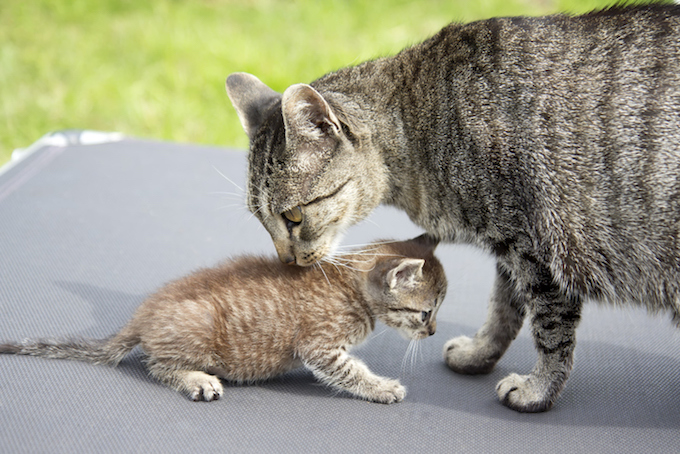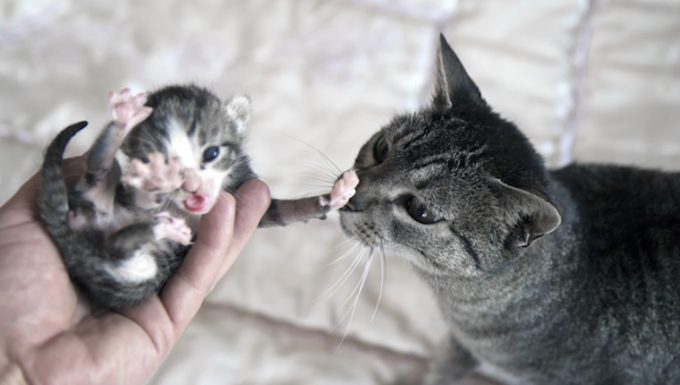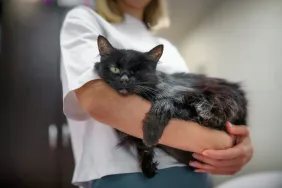Premature labor in cats happens when a kitten is born before 63 days of gestation. Stress, infections, and malnutrition can be causes of the condition.
Technically, the condition can also be referred to as early contractions and labor in cats.
If you see the signs of premature labor in your cat, then get to a veterinarian for a proper diagnosis and treatment.
Here’s what you should know about the symptoms, causes, and treatments for the condition.
Symptoms of Premature Labor in Cats
The condition produces a number of symptoms. The symptoms will show before a cat goes into labor. For instance, some of the most common symptoms include:
- Vaginal discharge (with blood)
- Loss of appetite
- Seeking out more affection than usual
- Hiding a lot
- Vocalizing a lot
Causes of Premature Labor in Cats

The cause of the condition can be one of a wide number of things. For example, some of the most common causes of the condition include:
- Stress
- Bacterial infection
- Malnutrition
- Lyme disease
- Very loud noises
- Certain medications
- Hormonal issues
- Viral infection
- Very cold temperatures
- Being moved to a new location while pregnant
Additionally, in some cases the condition can unfortunately be genetic.
Treatments for Premature Labor in Cats
Firstly, if you notice your cat showing signs of the condition, it is vital that you contact your vet straight away.
Your vet will ask about your cat’s medical history and symptoms. Additionally, your vet will ask about any recent circumstances that could have prompted the condition.
Next, a full physical examination will be carried out. This will include blood and urine tests.
Ultimately, an ultrasound is the most effective way to diagnose the condition.
Treatment will be needed to deal with the underlying condition. Additionally, any stillborn kittens will need to be surgically removed.
While recovering at home it is important to provide your cat with a quiet and calm environment. Also, keep up regular vet visits to check on their health and recovery.
Finally, you can learn more about cats and pregnancy here.
Have you ever cared for a cat who suffered from this condition? How did your vet help your cat recover? Let us know in the comments section below.









